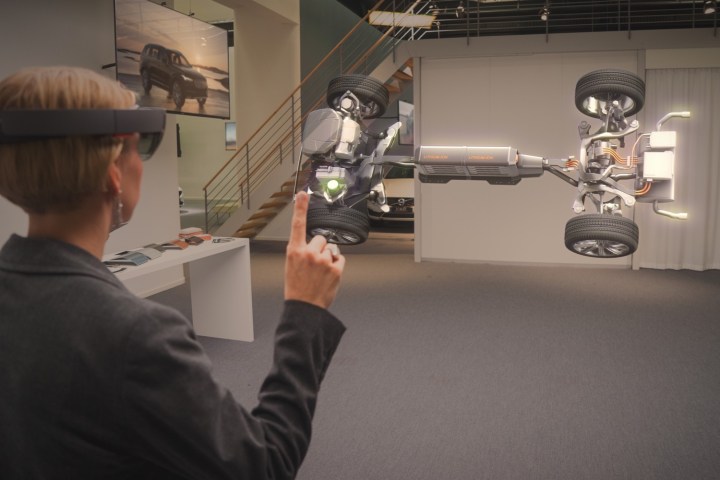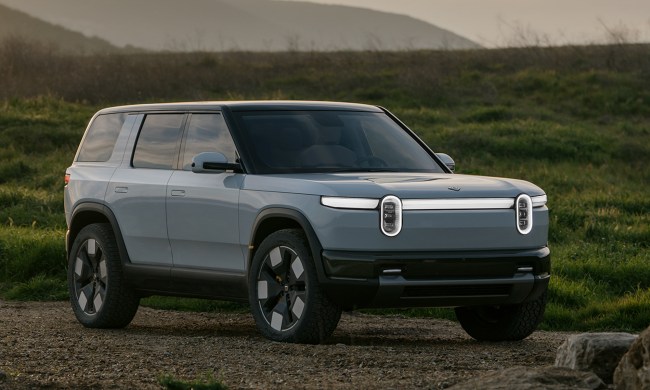
Volvo hopes to streamline this process a bit through a new collaboration with Microsoft. The Swedish carmaker wants to use HoloLens “mixed-reality” tech to change the car-buying experience by, among other things, letting customers see and walk around virtual, configurable cars.
The idea is to use the HoloLens to let customers virtually customize cars by looking at different color or trim options, and to allow dealers to show off different features. Customers could look at a three-dimensional projection of the car, see its safety features in action, or even strip off the bodywork to take a look at the powertrain, Volvo and Microsoft claim.
But in practice, the Holo-dealership may not be as slick as it sounds. At a demonstration of the technology at Microsoft headquarters in Redmond, Washington, there were some issues, according to The New York Times. Journalists were shown digital versions of the S90, Volvo’s upcoming luxury sedan (it will be unveiled in physical form at the 2016 Detroit Auto Show). The HoloLens’ narrow field of view didn’t produce the immersive experience that was advertised, one of the participants said.
Nonetheless, Volvo sees the HoloLens as a potential tool for increasing sales. In a press release announcing the partnership with Microsoft, Volvo senior vice president of sales, marketing, and service Björn Annwall said the technology could “liberate” dealers from showrooms, allowing them to take portable car configurators to pop-up stores, malls, or even set them up on the street.
This isn’t the first time Volvo has tried to use technology to alter the ways it interacts with consumers. Last year, the company announced that it would reduce its presence at international auto shows, and focus on digital marketing instead. It also said it might pursue online sales.
The Volvo partnership with Microsoft will extend beyond HoloLens to include other emerging technologies. The two companies may collaborate on “autonomous driving technologies and the utilization of data generated from connected cars,” Volvo said.


